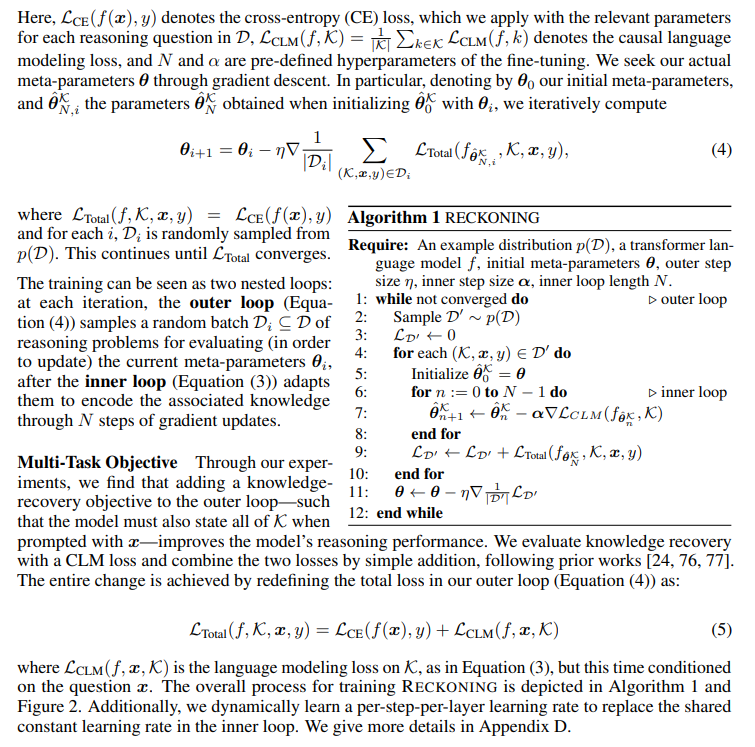Table of Links
-
4.1 Multi-hop Reasoning Performance
4.2 Reasoning with Distractors
A. Dataset
B. In-context Reasoning with Distractors
E. Experiments with Large Language Models
3 Method
Addressing these challenges, we propose RECKONING (REasoning through dynamiC KnOwledge eNcodING), which solves reasoning problems by memorizing the provided contextual knowledge, and then using this encoded knowledge when prompted with downstream questions. Specifically, RECKONING uses bi-level optimization to learn a set of meta-parameters primed to encode relevant knowledge in a limited number of gradient steps. The model can then use its updated weights to solve reasoning problems over this knowledge, without further presentation of the knowledge itself



:::info
Authors:
(1) Zeming Chen, EPFL (zeming.chen@epfl.ch);
(2) Gail Weiss, EPFL (antoine.bosselut@epfl.ch);
(3) Eric Mitchell, Stanford University (eric.mitchell@cs.stanford.edu)’;
(4) Asli Celikyilmaz, Meta AI Research (aslic@meta.com);
(5) Antoine Bosselut, EPFL (antoine.bosselut@epfl.ch).
:::
:::info
This paper is available on arxiv under CC BY 4.0 DEED license.
:::